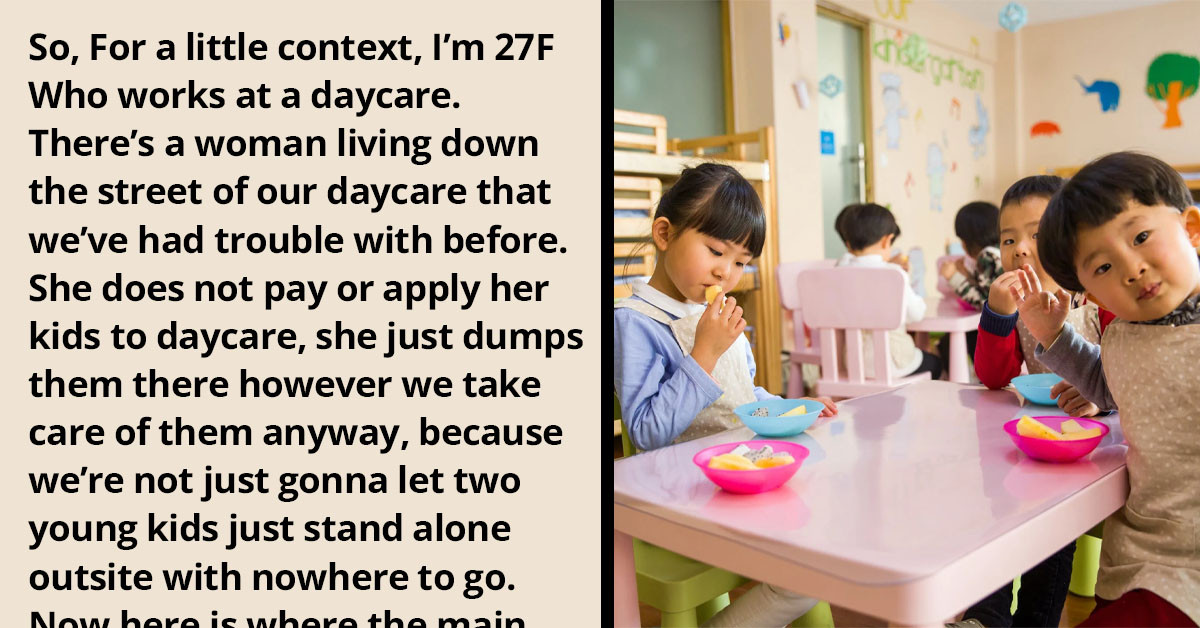Is Daycare Harmful? A Psychologist's Claims And The Expert Response

Table of Contents
Psychologist's Claims Regarding Potential Negative Impacts of Daycare
Some psychologists have voiced concerns about potential negative consequences associated with daycare attendance. These claims often center on the impact on attachment, stress levels, and social-emotional development. It's crucial to examine these claims critically, considering the nuances of childcare and the vast body of research available.
-
Claim 1: Increased risk of insecure attachment due to multiple caregivers. Some argue that exposure to multiple caregivers in daycare can lead to insecure attachment styles in children. However, research suggests that the quality of caregiving, not the number of caregivers, is the more significant factor. A consistent, responsive caregiver, even within a daycare setting, can foster secure attachment. Studies have shown that children in high-quality daycare settings exhibit similar attachment patterns to those cared for exclusively at home.
-
Claim 2: Potential for heightened stress and cortisol levels in children attending daycare. While some studies have shown elevated cortisol levels (a stress hormone) in children attending daycare, this isn't necessarily indicative of harm. The context of these studies often involves children in lower-quality care environments with poor caregiver-child ratios or inconsistent routines. Stress response is also influenced by the child’s individual temperament and the overall home environment.
-
Claim 3: Suggestions of negative impacts on social-emotional development, especially in lower-quality daycare settings. The quality of daycare significantly impacts a child's social-emotional development. Lower-quality settings, characterized by neglect, insufficient stimulation, and negative interactions, can potentially hinder social-emotional growth. "Lower-quality" in this context often refers to inadequate staff training, high child-to-staff ratios, and a lack of engaging activities.
Expert Rebuttals and Evidence-Based Research on Daycare's Benefits
Developmental psychologists and childcare experts overwhelmingly refute the notion that daycare is inherently harmful. A vast body of research points to significant benefits associated with high-quality daycare, particularly regarding cognitive development and socialization.
-
Point 1: High-quality daycare can foster cognitive development and early learning skills. Numerous studies demonstrate a positive correlation between attending high-quality daycare and improved cognitive skills, including language development, problem-solving abilities, and academic readiness. For instance, a meta-analysis published in [insert citation here] showed that children in high-quality daycare programs performed better on cognitive assessments than their home-cared counterparts.
-
Point 2: Socialization benefits: Daycare provides opportunities for children to interact with peers and learn essential social skills. Daycare offers an unparalleled environment for children to develop crucial social skills, including sharing, cooperation, negotiation, conflict resolution, and empathy. Interaction with diverse peers helps children understand different perspectives and build social competence.
-
Point 3: Many studies show no significant negative impact on attachment when daycare is of high quality. Research consistently shows that high-quality daycare doesn't negatively affect attachment. In fact, children in nurturing daycare environments develop secure attachments with their caregivers, both at home and in the daycare setting.
-
Point 4: Address the importance of caregiver-child ratio and quality of care in mitigating potential negative effects. The caregiver-child ratio and the overall quality of care are pivotal. A low caregiver-child ratio (e.g., one caregiver for every four infants) ensures that each child receives individual attention and responsive care. High-quality care encompasses qualified, trained staff who engage in positive interactions with children in a safe, stimulating environment.
Defining "High-Quality" Daycare: Key Factors to Consider
Choosing a high-quality daycare is paramount. Key factors include:
- Low caregiver-to-child ratios: Ensures individualized attention.
- Qualified and trained staff: Professionals with expertise in child development.
- Engaging and stimulating learning environment: Provides opportunities for exploration and learning.
- Safe and nurturing atmosphere: Creates a secure and comfortable space for children.
- Positive and responsive interactions between caregivers and children: Fosters secure attachment and emotional well-being.
Addressing Parental Concerns and Finding the Right Fit
Choosing daycare can be stressful. Addressing concerns requires careful planning and observation:
- Thoroughly research and visit potential daycare centers. Check licensing, qualifications, and reviews.
- Observe interactions between caregivers and children. Look for warmth, responsiveness, and engagement.
- Consider your child's temperament and personality when selecting a daycare. Some children thrive in more stimulating environments, while others prefer a quieter setting.
- Maintain open communication with the daycare staff. Establish a strong partnership to ensure your child's needs are met.
- Trust your instincts. If something feels wrong, it's important to explore your concerns further.
Conclusion
The debate around "Is daycare harmful?" is nuanced. While some concerns exist, particularly regarding low-quality care, substantial research highlights the benefits of high-quality daycare for children's development. The key lies in selecting a daycare that prioritizes a nurturing, stimulating environment with low caregiver-child ratios and well-trained staff.
Making an informed decision about childcare is crucial. By understanding the factors that contribute to high-quality daycare and carefully assessing your options, you can alleviate concerns about whether daycare is harmful and provide your child with the best possible start in life. Continue your research into finding the right daycare for your family and don't hesitate to seek advice from child development experts. Remember, choosing high-quality daycare is an investment in your child's future.

Featured Posts
-
 Prognozirovanie Snegopadov V Mae Problemy I Perspektivy
May 09, 2025
Prognozirovanie Snegopadov V Mae Problemy I Perspektivy
May 09, 2025 -
 Rio Ferdinand Reverses Champions League Final Prediction Psg Vs Arsenal
May 09, 2025
Rio Ferdinand Reverses Champions League Final Prediction Psg Vs Arsenal
May 09, 2025 -
 Stephen Kings 2024 Movie Slate The Monkey And What To Expect
May 09, 2025
Stephen Kings 2024 Movie Slate The Monkey And What To Expect
May 09, 2025 -
 Surgeon General Nomination Controversy White House Pivots To Maha Influencer
May 09, 2025
Surgeon General Nomination Controversy White House Pivots To Maha Influencer
May 09, 2025 -
 Bao Mau Tien Giang Hanh Hung Tre Noi Dung Loi Khai Chi Tiet
May 09, 2025
Bao Mau Tien Giang Hanh Hung Tre Noi Dung Loi Khai Chi Tiet
May 09, 2025
